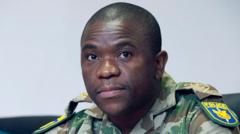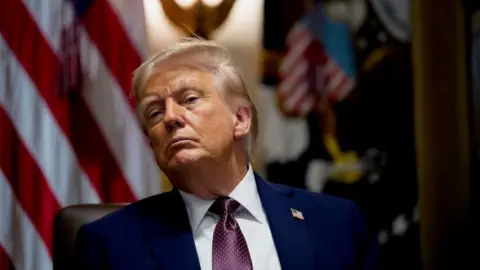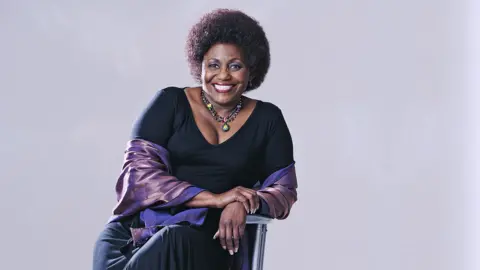In a stunning press conference, General Nhlanhla Mkhwanazi, the police commissioner of KwaZulu-Natal, has sent shockwaves through South Africa's political landscape by accusing Police Minister Senzo Mchunu of having connections to organized crime groups. Dressed in a military uniform and flanked by armed, masked officers, Mkhwanazi's accusations include assertions that Mchunu has shut down an elite investigative unit that was probing political murders linked to a sprawling drug cartel permeating various sectors of society.
"I am in combat mode, directly confronting criminals," Mkhwanazi stated in a live televised address, signifying both his determination and the seriousness of the allegations. The level of organized crime in South Africa has long been a concern for citizens, with an alarming history of police corruption exemplified by past figures such as Jackie Selebi, who was imprisoned for colluding with criminal enterprises.
The immediate public reaction to Mkhwanazi's allegations has been overwhelmingly supportive. He quickly ascended to the top of social media trends, with citizens rallying around him, motivated by his reputation as a fearless leader unwilling to bend to political pressure. “He’s seen as a no-nonsense person who tackles problems head-on,” remarked crime expert Calvin Rafadi from the University of Johannesburg.
Mkhwanazi was previously celebrated for suspending Richard Mdluli, the crime intelligence chief and a close ally of former President Jacob Zuma, who later faced jail time for serious criminal charges. This history of integrity has established Mkhwanazi as a trusted figure in law enforcement. Yet, despite his reputation, he faced significant backlash from political entities after his suspension of Mdluli, resulting in a brief period of relative obscurity.
In 2018, he returned to prominence when appointed to lead the provincial police, focusing on escalating violent crime amidst a fierce struggle for power and state resources. However, his determination to pursue justice has now put him back into the firing line after Mchunu's closure of a vital investigative unit, which Mkhwanazi claimed is leaving critical cases unresolved.
"I will die for this badge. I cannot back down," declared Mkhwanazi, highlighting his commitment to the role. As public trust in the police continues to dwindle—with a recent survey noting a record low of 22%—Mkhwanazi's outspokenness against corruption represents a flicker of hope for many.
The aftermath of his allegations will be closely monitored, particularly with the impending change in leadership following Mchunu's ousting. Firoz Cachalia, the incoming acting police minister, commented on the unfamiliarity and gravity of Mkhwanazi's public claims, indicating that their truthfulness could vindicate the officer's actions.
Ultimately, general Mkhwanazi's challenge is not just against allegations from his superiors; it is a pivotal moment for South Africa's fight against rampant corruption within its law enforcement. The nation watches intently as the repercussions of this daring stand unfold.




















